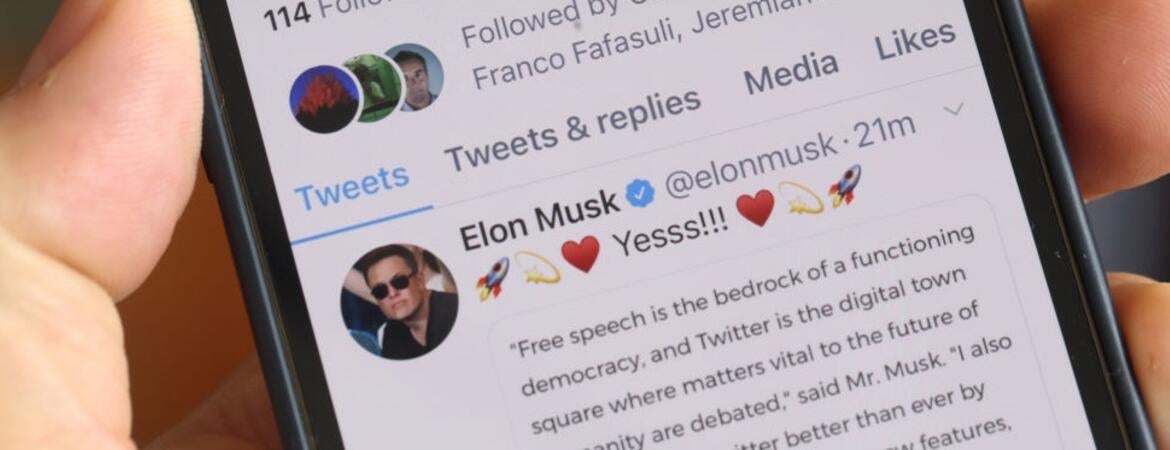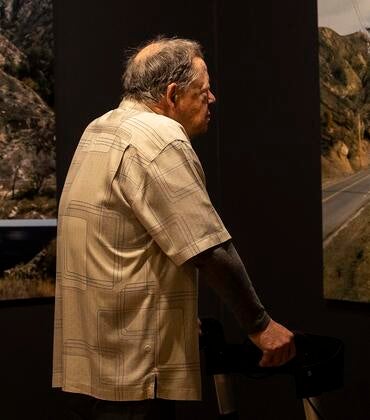
In October, Elon Musk took control of Twitter in a $44 billion deal, saying he hoped to enhance Twitter’s mission as “a digital town square." His changes to moderation practices have since led civil rights groups to allege his actions will increase hate speech and misinformation. This week, Musk’s Twitter raised alarms by suspending several high-profile journalists, drawing the condemnation of entities including The United Nations, the European Union, and the American Civil Liberties Union. We asked Kevin Esterling, a UC Riverside professor of political science and public policy, to weigh in on the implications of the journalists' suspensions. Esterling is director of the Laboratory for Technology, Communication and Democracy.
Q: The biggest fear with Musk’s Twitter takeover was unharnessed discourse, and the spread of misinformation. The move to suspend journalists appears to go in the opposite direction. How should we now interpret Musk’s free speech/digital town hall proclamations?
Esterling: In principle, the concept of free speech has always been bounded when speech can create actual harm to others. But the suspensions of journalists in this case shows that is not applying a principled test but instead is only considering if the potential harm is to him specifically as an individual. He seems less concerned if speech can potentially harm others. The arbitrariness is further underscored by the fact that the journalists who had been suspended didn't actually tweet any location information about Musk.
Q: Twitter is a private entity. But in the digital age, is this sort of suppression tantamount to government suppression of the media?
Esterling: I think as Twitter declines as a dominant social media platform, other platforms will emerge as alternatives, and so suppression of voices on Twitter won't be especially consequential.
Q: Does the chilling effect of the suspensions make “Twitter flight” more likely? Are there yet any viable alternatives to Twitter? If so, have the content moderation policies of those sites drawn scrutiny?
Esterling: My understanding is that the suspensions don't matter to the Twitter user community as much as his recent restrictions on sharing links from alternative social media platforms. I'm seeing more academic Twitter users promote their Mastodon accounts in place of their Twitter accounts, although that might be more wishful thinking since a full switch from Twitter to a new platform will require a sea change, and that is hard to predict if or when that would happen.



